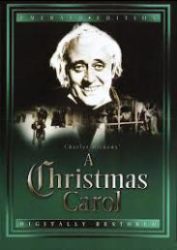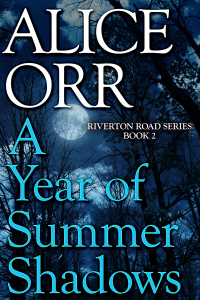Ebenezer Scrooge – What A Character! Scrooge is the writer’s ideal holiday gift. He comes with the kind of bountiful writing that unwraps straight into your creative heart. That is why Charles Dickens’ A Christmas Carol is one of the best known and most popular stories in the world. Ebenezer teaches us how to get a dusting of that magic on our own storytelling shoes.

Ebenezer Scrooge has a Universal Theme. He is a holiday sparkling example of “How the Mighty Have Fallen.” Many of us create such characters ourselves. Dickens – the master storyteller – shows us how and why to move even deeper. Past a character’s downfall and on to “How the Mighty Have Fallen then Been Dragged Back Up Again.”
Ebenezer Scrooge is All About Redemption. In fact his story is one of Dramatic redemption because of the depth of the depravity pit into which he has plunged himself. His personal brand of human depravity has to do with compassion. He doesn’t seem to have any.
Ebenezer Scrooge Appears to Be Irredeemable. His perpetually scowling face. His heartless behavior. How scornfully he regards the caring world as a humbug. All are keys to his reader appeal. The more seemingly impossible the character’s redemption – the more dramatic the story. And drama – plus power and intensity – is the wellspring of storytelling success.
Ebenezer Scrooge is the Poster Boy for the Character We Love to Hate. Deep-down mean. Unrepentant. He betrays his beloved sister by disowning her son. He abandons his devoted fiance. He all but freezes his hardworking clerk out of their threadbare counting house. Nonetheless Dickens creates a believable protagonist – not a cartoon. Ebenezer Scrooge – What A Character!

Ebenezer Scrooge is Old Buddies with a Ghost. Not a happy and harmless Casper type ghost. A chain-clanking – shrieking – terrifying horror named Jacob Marley. Dead set – pun intended – on rattling Ebenezer out of his complacency into awareness of the doom he inevitably faces.
Ebenezer Scrooge Must Change. This is his story goal. It is also his problem – his inner conflict. He does not want to change. He is absolutely committed to his bad old ways. Dickens must dredge up some mega-dramatic story twist to reach Ebenezer’s darkly damaged soul and tell a powerful tale.
Ebenezer Scrooge is Haunted. A Christmas Carol is a redemption story but it is also a ghost story. Our heartless hero is forced by phantasms to witness himself. His past retreat from human feeling. His present coldness. How he affects other people and his world. The dire consequences ahead for him. Meanwhile the ghosts guide Ebenezer through fear to remorse and his own humanity.
Ebenezer Scrooge Rackets Us Relentlessly Forward. We tumble through tumultuous adventures at a whirlwind pace. We barrel toward a foreboding future – the vision of an untended grave. We race to keep up. All the way to the redemption of our formerly fallen hero. The perfect storytelling payoff.

Ebenezer Scrooge Does Not Disappoint. He gives us story satisfaction to the max. Joy so unrepressed it transforms his stony face into laughing eyes and a glorious grin. Generous deeds. Goodness and light. Life celebrated in every direction for everyone – including us. To which I say. Ebenezer Scrooge – What A Character! Thank you Mr. Dickens and “God Bless Us Every One.”
“Success is not final. Failure is not fatal. It is the courage to continue that counts.” Winston Churchill. “You possess storytelling magic. Keep on writing whatever may occur.” Alice Orr https://www.aliceorrbooks.com
Ask Alice Your Crucial Questions. What are you most eager to know about how to discover the strongest story characters you have in you? Ask your questions in the Comments section at the end of this post. Alice will answer.
Alice Orr. Teacher. Storyteller. Former Editor and Literary Agent. Author of 14 novels, 2 novellas, a memoir, and No More Rejections: 50 Secrets to Writing a Manuscript that Sells. She blogs for Writers at https://www.aliceorrbooks.com.
Celebrate the Season with Alice’s holiday novel A Vacancy at the Inn – Riverton Road Romantic Suspense Series Book 3. Available HERE.

Praise for A Vacancy at the Inn. “Grabbed me right away and swept me up in the lives of Bethany and Luke.” “Undercurrents of suspense move the story along at an irresistible pace.” “The Miller family is rife with personality quirks, an authentic touch that demonstrates Alice Orr’s skill as a writer.” “I never want an Alice Orr book to end.”
All of Alice’s Books are available HERE.
http://facebook.com/aliceorrwriter/
http://twitter.com/AliceOrrBooks/
http://goodreads.com/aliceorr/
http://pinterest.com/aliceorrwriter/



